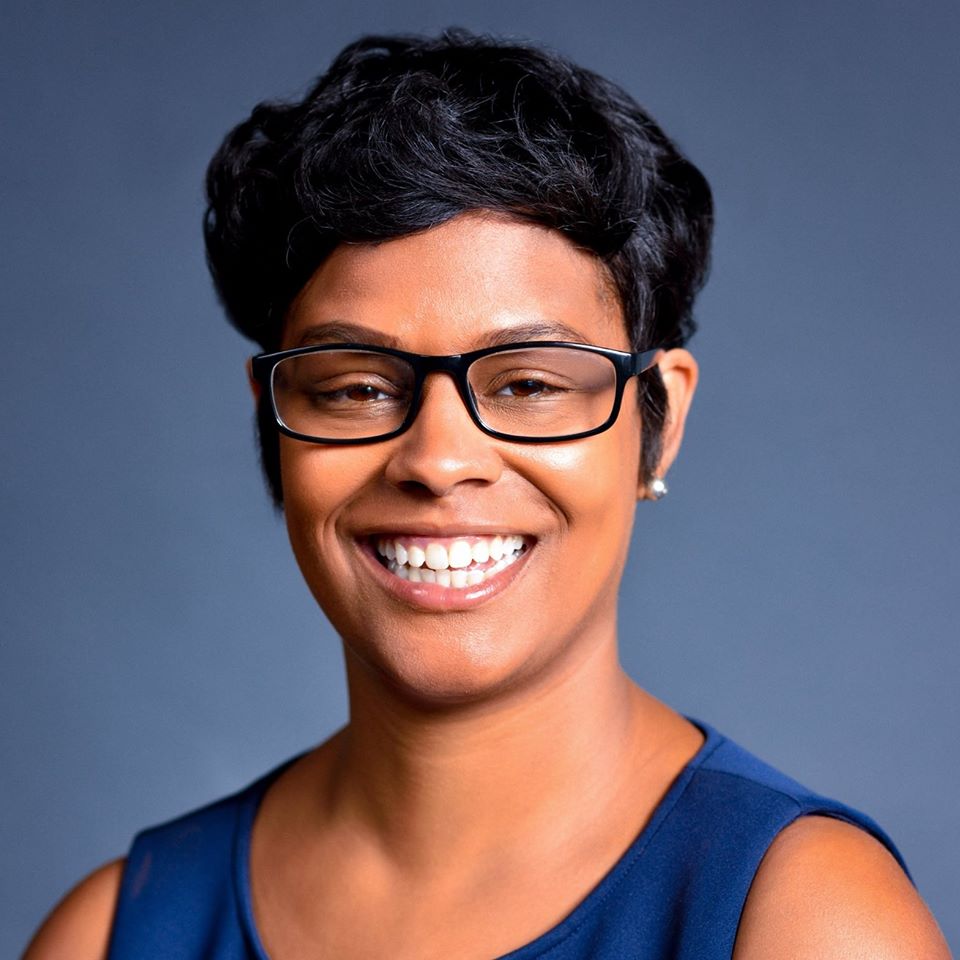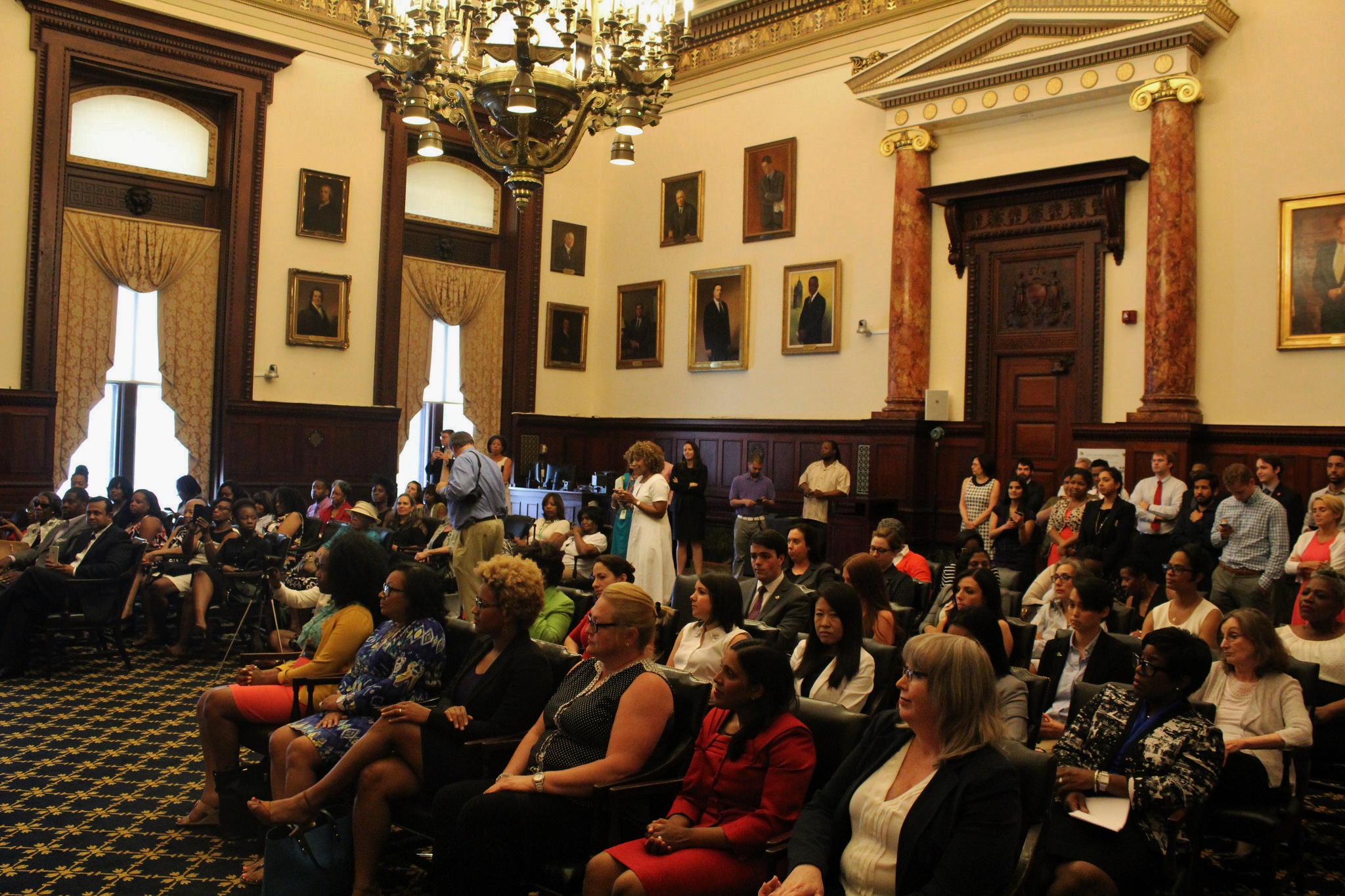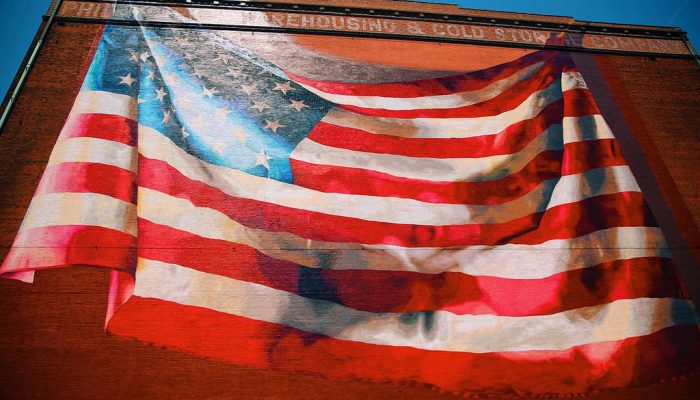Every year on August 26, Americans observe Women’s Equality Day. We honor this day for a very good reason: On August 26, 1920, the 19th Amendment to the U.S. Constitution guaranteeing women the right to vote was certified into law!
To observe Women’s Equality Day, and to talk about what women’s equality looks like nowadays, we talked with State Rep. Morgan Cephas, who represents a district encompassing parts of West Philadelphia.
Rep. Cephas also sits on the Philadelphia Commission for Women, lending her unique experience and insights to help us advance gender equality and promote public discussions on issues that impact women and girls.

Based on your experience and observation, what are the unique perspectives women bring to the legislation process?
The role that women have traditionally played as mothers and caregivers in their communities grounds “women’s issues” as those that impact society as whole – like education, economics, and health.
In my experience, women bring this perspective to politics and are more likely to roll up their sleeves, work hard, and stay late to address issues like equity in education and income equality in the workplace, poverty alleviation for families, and expanding equality across all of society.
Given the polarized environment of our current political climate, the challenges we face require leaders to find common ground on tough policy and budget-related issues that impact our families at the kitchen table.
The issues facing the Commonwealth of Pennsylvania require leadership and representatives with diverse backgrounds and experiences that should lead to innovative ideas and solutions.
Women’s civic participation affects both the range of policy issues that get considered — and the types of solutions that are proposed!
What are the unique challenges facing women legislators?
The number of women making up the various legislative bodies is low, but the number of women in leadership positions is even lower — particularly given the statistical breakdown of our population and voter turnout.
These positions are responsible for setting the agenda and moving bills in their respective committees and joining caucus leadership who can sit in the room with the governor to hash out issues, like the state budget.
The absence of women in these roles represents the absence of our ideas, our voice and, clearly, the absence of representing the interests and needs of half the population.

What are the things that need to happen to have more women elected to public office?
Research has found a woman needs to be asked multiple times before she considers running for office.
Unlike our male counterparts, women consider their qualifications for the job, their ability to do the job, the financial realities of the race and their family and home life obligations before making their decision. Men often tend to consider these issues after the fact.
To ensure more women are elected, I think a few things need to happen, like:
- Establishing more development and training programs, like those offered by Chatham University that not only focus on how to win but also how to find work-life balance
- Creating more mentorship opportunities with women who have been elected to public office
- Initiating proactive searches for those women who are interested in running so we can begin building a pipeline of women in all parties, from local school boards to the U.S. Senate
- Leaders of all political parties must promote women to leadership positions across legislative bodies at every level
- Women of all parties need broad access to campaign funds
You’re on the Committee on Women and Girls of Color. Tell us about this work.
The Committee on Women and Girls of Color is a subcommittee that was established by the leadership of the Pa. General Assembly’s Black Caucus in March 2017. The primary focus of the subcommittee is to ensure the needs and aspirations of women and girls of color in Pennsylvania are realized in the legislative, public policy, and funding process within this legislative body.
As the chair of the subcommittee, I work together with other legislators to solicit bipartisan input among our colleagues and to introduce and support legislation, and make funding recommendations during the budget season, that can impact change on issues that disproportionately impact women and girls of color.
Over the years, we have statistically made strides in areas of education attainment, business ownership, and the workplace by moving into upper management across various industries. Although these achievements are notable, women and girls of color still lag in standardized testing performance, face higher rates of poverty, and receive lower wages than their white female counterparts.
These are clear indicators that we still have a lot of work to do.
Given these dynamics and the diverse needs of this constituency, in the upcoming months the subcommittee will launch a listening tour to ensure the agenda and the advocacy efforts set for the group truly reflects the priorities of our women and girls of color in Pennsylvania.

